For what has been hailed as a vintage year for gaming, 2011 sure took a long time to get going. It was only a couple of months ago that I’d purchased a grand total of two games that didn’t come from the App Store, and then we had a big game a week for a while there, putting ridiculous strain on the funds of any gamer. There was recently a comment from Activision’s Eric Hirshberg on the entirely manufactured and unnecessary ‘rivalry’ between Battlefield 3 and Modern Warfare 3 that I think the whole industry could take note of:
“We shouldn’t be tearing each other apart fighting for a bigger piece of the pie – we should all be focused on trying to grow a bigger pie.”
Not everyone has the money or dedication to spend hundreds in a single month to play everything, and it’ll suck the industry dry for every company that doesn’t have a billion-dollar marketing budget. So how about spreading the love a bit, even if it means making the spring into Christmas-lite?
As always, any game that was released somewhere in the world and was played by me for the first time in 2011 is eligible for the list, starting tomorrow, even though there are a few notables that are excluded on this basis. And for reference, here are my lists for 2005, 2006, 2007, 2008, 2009 and 2010.

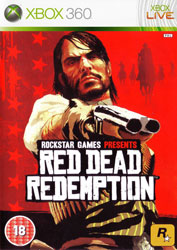 If last generation’s defining games, the Grand Theft Auto series, feels like it’s past its best – a feeling that, I would suggest, is shared by Rockstar, given the reduced prominence of the franchise – what Red Dead Redemption did was prove that the formula itself is still full of life.
If last generation’s defining games, the Grand Theft Auto series, feels like it’s past its best – a feeling that, I would suggest, is shared by Rockstar, given the reduced prominence of the franchise – what Red Dead Redemption did was prove that the formula itself is still full of life.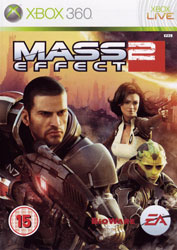 I know for a fact that many of the first game’s most ardent fans will disagree vehemently with this, but for my money Mass Effect 2 will stand as one of the primary examples of how to improve on a game for its sequel. It may have jettisoned some of the RPG ideals of the first game, but I found its attempts at streamlining perfect, creating a brilliant action-RPG – emphasis on the ‘action’ – with one of the best open-ended stories in recent history. The important thing is that what the first game did best – creating a wonderfully vibrant and believable sci-fi universe – was preserved and expanded.
I know for a fact that many of the first game’s most ardent fans will disagree vehemently with this, but for my money Mass Effect 2 will stand as one of the primary examples of how to improve on a game for its sequel. It may have jettisoned some of the RPG ideals of the first game, but I found its attempts at streamlining perfect, creating a brilliant action-RPG – emphasis on the ‘action’ – with one of the best open-ended stories in recent history. The important thing is that what the first game did best – creating a wonderfully vibrant and believable sci-fi universe – was preserved and expanded.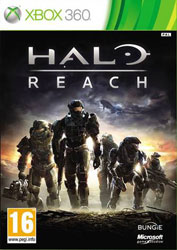 What is likely to be Bungie’s last entry in the series that it grew from niche Mac RTS to one of the biggest FPS franchises in history proved to be a fitting goodbye. It was almost like, freed of fitting another game into the Master Chief’s story and carrying the Xbox brand now that games like Gears of War can share the load, Bungie was able to flex its creative muscles, and while I’ll concede that it’s still super soldiers killing aliens, it was the most fun I’ve had with a game in this series since I first took it online.
What is likely to be Bungie’s last entry in the series that it grew from niche Mac RTS to one of the biggest FPS franchises in history proved to be a fitting goodbye. It was almost like, freed of fitting another game into the Master Chief’s story and carrying the Xbox brand now that games like Gears of War can share the load, Bungie was able to flex its creative muscles, and while I’ll concede that it’s still super soldiers killing aliens, it was the most fun I’ve had with a game in this series since I first took it online.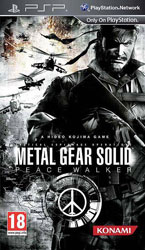 Considering the esteem in which the franchise is held, Metal Gear has a lot of disappointing instalments. This, however, wasn’t one of them, following up the best in the series – that’s MGS3, for those who aren’t keeping count – and absolutely stomping over the letdown of Portable Ops. This was a proper Metal Gear Solid game, originally planned as MGS5, and it’s a strong contender for my favourite of the lot.
Considering the esteem in which the franchise is held, Metal Gear has a lot of disappointing instalments. This, however, wasn’t one of them, following up the best in the series – that’s MGS3, for those who aren’t keeping count – and absolutely stomping over the letdown of Portable Ops. This was a proper Metal Gear Solid game, originally planned as MGS5, and it’s a strong contender for my favourite of the lot.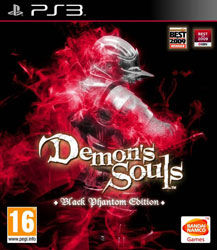 Having finally received a European release in 2010, we poor peasants on this side of the Atlantic finally got to experience what our American cousins had been telling us was the best thing since sliced bread at around this time last year. Those who dared to try it would find what will surely go down as one of this generation’s most challenging, most atmospheric and most original games. And in a gen that has so far severely disappointed with the quality of its RPGs, this one can largely stand alone.
Having finally received a European release in 2010, we poor peasants on this side of the Atlantic finally got to experience what our American cousins had been telling us was the best thing since sliced bread at around this time last year. Those who dared to try it would find what will surely go down as one of this generation’s most challenging, most atmospheric and most original games. And in a gen that has so far severely disappointed with the quality of its RPGs, this one can largely stand alone.